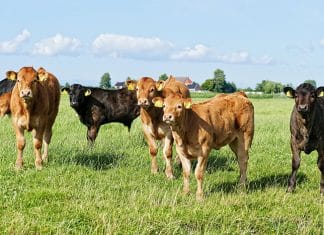Rainfed crop production remains the main source of food security and livelihoods for rural communities in South Africa, but presents the challenge of climate variability due to its high dependence on weather variables such as rainfall and temperature.
South African farmers are facing changing rainfall patterns (i.e. rainfall onsets and amounts), elevated temperatures, as well as frequent occurrence of weather-related risks such as drought, dry spells, heatwaves, floods, frost, hailstorms, crop pests and diseases. These risks are expected to increase in frequency and intensity, hence threatening food security and livelihoods of most farmers, with small-scale farmers being among the most vulnerable.
For smallholder farmers, crop yields are closely linked to food security and livelihoods. Therefore, the need for the uptake and use of innovative approaches that can minimise the risks and losses associated with climate variability, increase food production and conserve natural resources, are becoming more urgent to enhance these farmers’ climate resilience.
Read more about climate indices for informed agricultural decision-making.
Mitigating climate variability
This article provides a short overview of different practices reported in research studies to be effective in assisting smallholder farmers to cope with climate variability in the Southern Africa region. However, it is worth mentioning that adaptation strategies are not a ‘one size fits all’ solution. Farmers are encouraged to employ a combination of practices that are feasible, affordable and suitable based on their local context, exposure, vulnerability and available resources.
Good agronomic practices
The selection of crop types best suited to their soil types and climate conditions is the first step for sustainable agricultural production. Farmers should adopt cropping systems such as crop diversification, intercropping and crop rotation that will improve the efficient use of the cropping area, and minimise total loss of production due to unforeseen weather conditions.
Farmers should always plant good quality seed during the right soil conditions at the right time. Based on the climate risks they are exposed to, they should select seed varieties that are resistant to the particular risk threatening their crop production.
Moreover, farmers are encouraged to adopt improved agronomic practices such as good soil fertility management (organic and inorganic fertilisers), correct spacing and plant population, timely planting, weeding and pest control. To ensure optimal seed germination, they should only plant when there is sufficient soil moisture and avoid planting on cold days.
Improved soil and water conservation
The availability of adequate amounts of groundwater required by a crop at a specific growth stage, is crucial for crop production. As nothing can be done to change rainfall patterns, more efforts should be invested in capturing, storing and making effective use of every single raindrop. Therefore, farming practices that maximise water infiltration and retention such as water harvesting, minimum tillage and improved soil organic management, are recommended. Farming practices that protect the soil from erosion and reduce water losses, such as mulching and cover crops, are also recommended.
Uptake of information services
Farmers are encouraged to use weather forecasting, early-warning systems and agrometeorological advisories to make informed decisions. Accessibility to reliable climate information allows farmers to plan their activities effectively and make informed decisions regarding different management practices such as when to plant, spray and weed for sustainable agricultural production.
One such service is the Agrometeorology Programme of the ARC-Soil, Climate and Water (ARC-SCW). It supports sustainable agricultural production and efficient use of natural resources. A weather station network comprising around 600 stations distributed across all agro-climatic zones in the country, allows the ARC to supply the agricultural community with weather and climate data to support planning and decision-making.
Adapt or perish
Climate change is real and will stay with us for decades to come, no matter what mitigation strategies we undertake today. Farmers are encouraged to apply all recommended practices to improve their productivity, profitability, and climate resilience and which have the potential to reduce or prevent environmental damage wherever possible. – Dr Lindumusa Myeni, ARC-Soil, Climate and Water
This work was carried out as part of the InnovAfrica project and financial support from the European Union’s H2020 Research and Innovation Programme under Grant Agreement No. 727201 is gratefully acknowledged. For more information, contact Dr Lindumusa Myeni on 012 310 2676 or email MyeniL@arc.agric.za.





